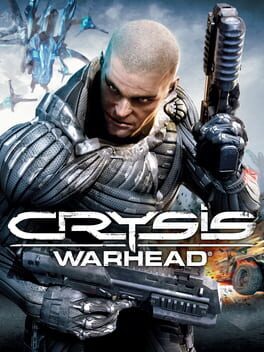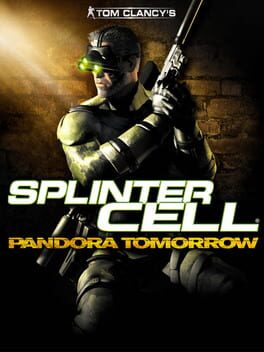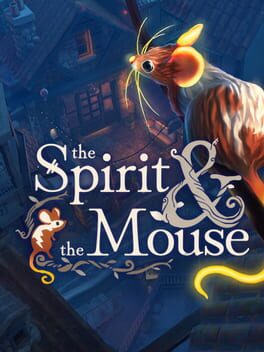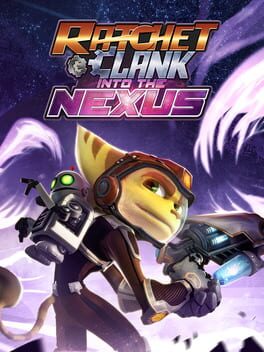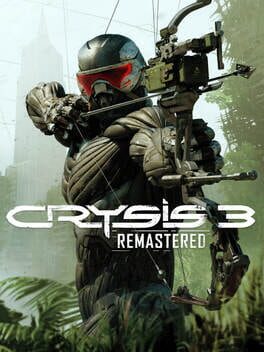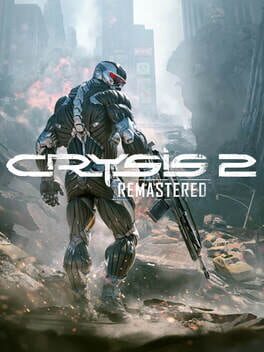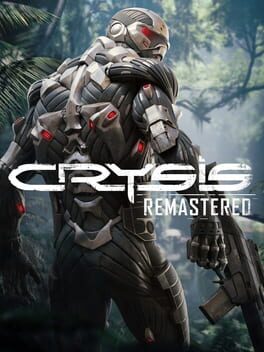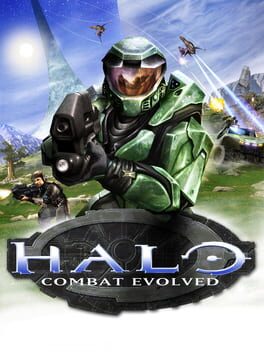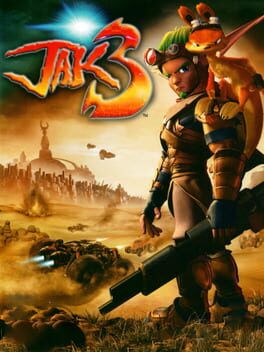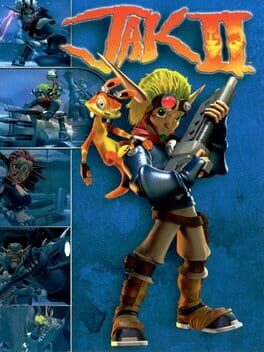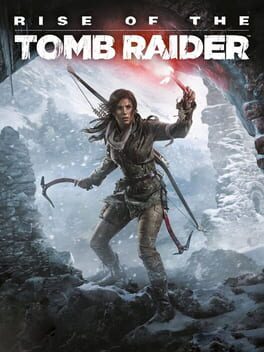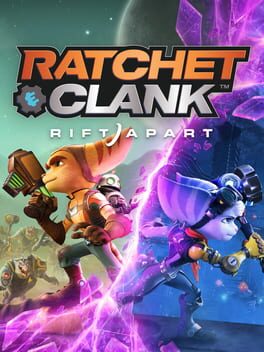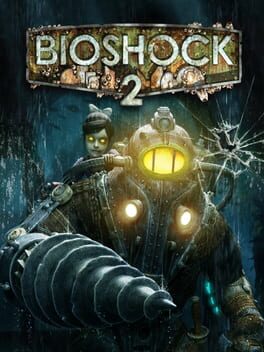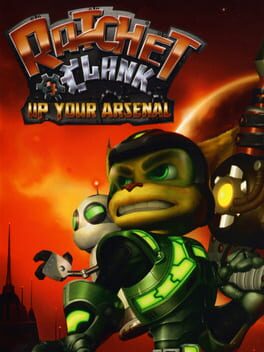blackcat
2008
Colour me surprised. This was the best Crysis game.
Crysis Warhead has everything good about Crysis 1, but also fewer and shorter alien sequences, and a much better protagonist. The exotic island sandbox is just as fun and still looks great for its age, and the handful of action setpieces keep things exciting but are short enough that the game doesn't start to feel like Crysis 2. A good decision was having the alien encounters interspersed between the sandbox missions with human soldiers, which allowed the story to occur simultaneously with Crysis 1's story, without the first game's jarring pivot to only linear missions with aliens. The game's short length prevented it from being exhausting like Crysis 1, but it also stayed consistently good throughout, which is something Crysis 3 failed to do despite also being fairly short.
Instead of the first game's Nomad, this game stars fellow super soldier Psycho as the main character, and where Nomad was a nondescript generic soldier, Psycho is much more likeable and human. Though the story was never a strong point of Crysis, I actually really liked Psycho as a character in this game.
Unfortunately, however, Crysis Warhead is not without its flaws, and it seems this series is cursed to never have a perfect entry. Though their inclusion is a bit more restrained in this game, there are still sections involving aliens. This by itself is not a problem, but just like in Crysis 1, they're just not very fun to fight. Fortunately the vast majority of the game is fighting soldiers in sandbox levels, but if you're hoping for a Crysis game without any aliens, you'll be disappointed.
The biggest problem with this game by far, though, is the bugs and technical issues. The game is nearly 16 years old, yet the performance on a capable PC in 2024 is middling at best and completely abysmal at worst, even dropping to 30 fps in some large battles. I encountered a lot of odd physics bugs, and the game crashed several times. I don't know if it's a bug or intentional, but any explosion would cause the screen to go black for a moment, which was incredibly annoying in the middle of combat. Some bugs were just straight up bizarre, like getting stuck in crouch after exiting the prone position, and towards the end of the game some functions like switching weapons, reloading, and throwing grenades stopped working completely, with the only solution being to enter and exit a vehicle. And the final cherry on top was the checkpoint after beating the final boss not triggering, which forced me to reload a save from a few minutes prior and do the entire fight again. Where the other Crysis games fell short in execution of gameplay ideas, Crysis Warhead found a good balance that kept me engaged the whole time, but was let down by incessant technical issues and bugs.
Crysis Warhead has everything good about Crysis 1, but also fewer and shorter alien sequences, and a much better protagonist. The exotic island sandbox is just as fun and still looks great for its age, and the handful of action setpieces keep things exciting but are short enough that the game doesn't start to feel like Crysis 2. A good decision was having the alien encounters interspersed between the sandbox missions with human soldiers, which allowed the story to occur simultaneously with Crysis 1's story, without the first game's jarring pivot to only linear missions with aliens. The game's short length prevented it from being exhausting like Crysis 1, but it also stayed consistently good throughout, which is something Crysis 3 failed to do despite also being fairly short.
Instead of the first game's Nomad, this game stars fellow super soldier Psycho as the main character, and where Nomad was a nondescript generic soldier, Psycho is much more likeable and human. Though the story was never a strong point of Crysis, I actually really liked Psycho as a character in this game.
Unfortunately, however, Crysis Warhead is not without its flaws, and it seems this series is cursed to never have a perfect entry. Though their inclusion is a bit more restrained in this game, there are still sections involving aliens. This by itself is not a problem, but just like in Crysis 1, they're just not very fun to fight. Fortunately the vast majority of the game is fighting soldiers in sandbox levels, but if you're hoping for a Crysis game without any aliens, you'll be disappointed.
The biggest problem with this game by far, though, is the bugs and technical issues. The game is nearly 16 years old, yet the performance on a capable PC in 2024 is middling at best and completely abysmal at worst, even dropping to 30 fps in some large battles. I encountered a lot of odd physics bugs, and the game crashed several times. I don't know if it's a bug or intentional, but any explosion would cause the screen to go black for a moment, which was incredibly annoying in the middle of combat. Some bugs were just straight up bizarre, like getting stuck in crouch after exiting the prone position, and towards the end of the game some functions like switching weapons, reloading, and throwing grenades stopped working completely, with the only solution being to enter and exit a vehicle. And the final cherry on top was the checkpoint after beating the final boss not triggering, which forced me to reload a save from a few minutes prior and do the entire fight again. Where the other Crysis games fell short in execution of gameplay ideas, Crysis Warhead found a good balance that kept me engaged the whole time, but was let down by incessant technical issues and bugs.
Splinter Cell: Pandora Tomorrow is a respectable sequel to the first game, but still retains all of its jank, making it equally frustrating despite its magnificent ideas.
There are some meaningful improvements from Splinter Cell 1. The swat turn is invaluable for staying unnoticed in certain indoor situations, and there is now an indicator for whether it's safe to hide a body. The laser sight on the pistol allows you to see exactly where your shot will land with the tradeoff that it's also visible to enemies. It's still ultimately a bandaid solution to the problem with Splinter Cell's shooting, though. The unpredictable bullet trajectory, which seems to exist to discourage shooting willy-nilly, can also completely blow your cover when you line up a seemingly accurate shot only for it to come out of your gun sideways and alert everyone nearby. Adding a sight made this issue less frustrating, but it just didn't need to be there in the first place and it took until the third game for Ubisoft to finally do away with it.
The lighting and atmosphere are superb as ever, and the level variety is much better than in Splinter Cell 1, with much more diverse and memorable locations.
Unfortunately the action sequences from the first game have been forced in again, though thankfully slightly fewer in number and I found them less annoying. But they also just didn't need to be there and it once again took until the series' third attempt to understand this. And even then, Chaos Theory didn't completely learn from the mistakes of its predecessors.
The detection system is incredibly janky, much like Splinter Cell 1, and was by far the most frustrating issue I had with this game. Even the tiniest movements could make the enemy turn around and start blasting while alerting everyone around immediately. This is the main reason, along with the bad combat sequences, that I can rarely recommend the first two Splinter Cell games.
There are some meaningful improvements from Splinter Cell 1. The swat turn is invaluable for staying unnoticed in certain indoor situations, and there is now an indicator for whether it's safe to hide a body. The laser sight on the pistol allows you to see exactly where your shot will land with the tradeoff that it's also visible to enemies. It's still ultimately a bandaid solution to the problem with Splinter Cell's shooting, though. The unpredictable bullet trajectory, which seems to exist to discourage shooting willy-nilly, can also completely blow your cover when you line up a seemingly accurate shot only for it to come out of your gun sideways and alert everyone nearby. Adding a sight made this issue less frustrating, but it just didn't need to be there in the first place and it took until the third game for Ubisoft to finally do away with it.
The lighting and atmosphere are superb as ever, and the level variety is much better than in Splinter Cell 1, with much more diverse and memorable locations.
Unfortunately the action sequences from the first game have been forced in again, though thankfully slightly fewer in number and I found them less annoying. But they also just didn't need to be there and it once again took until the series' third attempt to understand this. And even then, Chaos Theory didn't completely learn from the mistakes of its predecessors.
The detection system is incredibly janky, much like Splinter Cell 1, and was by far the most frustrating issue I had with this game. Even the tiniest movements could make the enemy turn around and start blasting while alerting everyone around immediately. This is the main reason, along with the bad combat sequences, that I can rarely recommend the first two Splinter Cell games.
2001
I absolutely respect Ico for the influence it had on artistic adventure and exploration games along with Shadow of the Colossus. I really wanted to like it, as Shadow of the Colossus is one of my favorite games ever.
Unfortunately I hated Ico.
The loose controls, weird camera, and blurry, eye-straining graphics with way too much bloom gave me an actual headache. I just could not continue playing when the game had made me physically unwell in the first half hour.
Unfortunately I hated Ico.
The loose controls, weird camera, and blurry, eye-straining graphics with way too much bloom gave me an actual headache. I just could not continue playing when the game had made me physically unwell in the first half hour.
A cute, wholesome game about a mouse who wants to help humans in a cozy French town. With a dedicated squeak button. What's not to love?
Though I got the game in a platformer bundle, it's really more of a casual adventure game where you climb buildings by finding the climbable surfaces, as there's no way to jump. The camera is slightly janky and sometimes zooms in too close, but since the gameplay is entirely low stakes and you can't really fail besides giving the wrong answer for a puzzle, it's not a big issue.
The kibblins - small spirit creatures you assist in your quest to help humans - are very cute and they all have quirky personalities. They have a tendency to overexplain things, but the game was short enough that it didn't grow too tiresome.
The town had a wonderful vibe, with fantastic music to explore to. And making the humans happy always made me happy too.
I can wholeheartedly recommend this game if you want a cozy, low stakes adventure game or if you want a game where you play as a benevolent animal. It's very charming and you can easily finish it in an afternoon.
Though I got the game in a platformer bundle, it's really more of a casual adventure game where you climb buildings by finding the climbable surfaces, as there's no way to jump. The camera is slightly janky and sometimes zooms in too close, but since the gameplay is entirely low stakes and you can't really fail besides giving the wrong answer for a puzzle, it's not a big issue.
The kibblins - small spirit creatures you assist in your quest to help humans - are very cute and they all have quirky personalities. They have a tendency to overexplain things, but the game was short enough that it didn't grow too tiresome.
The town had a wonderful vibe, with fantastic music to explore to. And making the humans happy always made me happy too.
I can wholeheartedly recommend this game if you want a cozy, low stakes adventure game or if you want a game where you play as a benevolent animal. It's very charming and you can easily finish it in an afternoon.
A worthwhile entry in the Ratchet & Clank series, but too brief to make much of an impact.
With its short length, everything good about the PS3 Ratchet games gets to shine without any filler. Unfortunately, being a DLC-sized entry that followed two poorly received spinoffs is one of the reasons the game failed to leave a lasting impression on most players, and in the eight year wait for a continuation of the story, which we weren't even certain was coming after the PS4 reboot, it was something of an unceremonious ending for Ratchet's story. Into the Nexus doesn't do a whole lot to progress the overarching story, and A Crack in Time had a much stronger ending that could have even worked as a conclusion to the entire post-PS2 narrative. Into the Nexus and Rift Apart both retread themes that were already resolved by the end of A Crack in Time.
I will give this game credit for trying some novel ideas, though. I thought the villains were decent and a breath of fresh air when the series is otherwise insistent on recycling Dr Nefarious at every opportunity. I also liked the jetpack levels and the sidescrolling Clank levels.
For some reason Into the Nexus has some really noticeable framerate issues when most of the other Ratchet games run a lot better, which made the gameplay feel less smooth than the other games in the series.
I also think Ratchet looks really weird in this game after A Crack in Time nailed his character design.
It's not one of the best Ratchet games, but it's still fun enough to play at least once if you're a fan of the series.
With its short length, everything good about the PS3 Ratchet games gets to shine without any filler. Unfortunately, being a DLC-sized entry that followed two poorly received spinoffs is one of the reasons the game failed to leave a lasting impression on most players, and in the eight year wait for a continuation of the story, which we weren't even certain was coming after the PS4 reboot, it was something of an unceremonious ending for Ratchet's story. Into the Nexus doesn't do a whole lot to progress the overarching story, and A Crack in Time had a much stronger ending that could have even worked as a conclusion to the entire post-PS2 narrative. Into the Nexus and Rift Apart both retread themes that were already resolved by the end of A Crack in Time.
I will give this game credit for trying some novel ideas, though. I thought the villains were decent and a breath of fresh air when the series is otherwise insistent on recycling Dr Nefarious at every opportunity. I also liked the jetpack levels and the sidescrolling Clank levels.
For some reason Into the Nexus has some really noticeable framerate issues when most of the other Ratchet games run a lot better, which made the gameplay feel less smooth than the other games in the series.
I also think Ratchet looks really weird in this game after A Crack in Time nailed his character design.
It's not one of the best Ratchet games, but it's still fun enough to play at least once if you're a fan of the series.
2021
(reposting as I reviewed a different version of the game from the one I played)
A middling end to a middling series.
The first few hours of Crysis 3 were the most fun I had in any of the Crysis games. (Note that at the time of writing this review, I have not played Crysis Warhead.) The predator bow is awesome and the levels are well designed for creative gameplay approaches. The game fully embraces a sneaky hit-and-run disappearing into the shadows style of combat which is where this series is strongest. After Crysis 2's sharp turn into linearity, it seems the developers listened and brought back some of the sandbox creativity from Crysis 1. On top of that, it all takes place in beautiful overgrown ruins of New York, totally dripping with atmosphere. It's tremendous fun.
For a while.
Then the game's hurried development rears its ugly head. Crysis 3 is much shorter than Crysis 1 and 2, and it seems the developers knew this because the back half of the game mostly consists of large swathes of land with objectives plonked at opposite ends, which you just sprint or drive across with no actual content in between. It's a very obvious attempt to pad the game's length for as long as possible because it would otherwise be about four hours long. The last level turns into a corridor but still blatantly tries to delay the game's conclusion with pointless objectives and it plays like discount Halo, with a terrible final boss to boot. But desperately trying to stretch the game's length like this only served to make the game's final act more exhausting to get through, despite it still being shorter than its predecessors.
The Crysis series was built on a fine premise of a sandbox shooter with stealth-infused predator style combat. But somehow it let a mountain of potential slip through its fingers and each game fumbled the premise in unique ways. I still think the series deserves a revival, but only if it seriously takes its failures into account and properly builds on its strengths. There is definitely room in the market for a sandbox shooter that isn't Far Cry. A new Crysis would only have to stick to its guns and avoid trading player freedom for linear corridor levels, and ideally drop its nonsensical plot. But as it is, this series will probably be forgotten except for how amazing the first game's graphics looked in 2007.
A middling end to a middling series.
The first few hours of Crysis 3 were the most fun I had in any of the Crysis games. (Note that at the time of writing this review, I have not played Crysis Warhead.) The predator bow is awesome and the levels are well designed for creative gameplay approaches. The game fully embraces a sneaky hit-and-run disappearing into the shadows style of combat which is where this series is strongest. After Crysis 2's sharp turn into linearity, it seems the developers listened and brought back some of the sandbox creativity from Crysis 1. On top of that, it all takes place in beautiful overgrown ruins of New York, totally dripping with atmosphere. It's tremendous fun.
For a while.
Then the game's hurried development rears its ugly head. Crysis 3 is much shorter than Crysis 1 and 2, and it seems the developers knew this because the back half of the game mostly consists of large swathes of land with objectives plonked at opposite ends, which you just sprint or drive across with no actual content in between. It's a very obvious attempt to pad the game's length for as long as possible because it would otherwise be about four hours long. The last level turns into a corridor but still blatantly tries to delay the game's conclusion with pointless objectives and it plays like discount Halo, with a terrible final boss to boot. But desperately trying to stretch the game's length like this only served to make the game's final act more exhausting to get through, despite it still being shorter than its predecessors.
The Crysis series was built on a fine premise of a sandbox shooter with stealth-infused predator style combat. But somehow it let a mountain of potential slip through its fingers and each game fumbled the premise in unique ways. I still think the series deserves a revival, but only if it seriously takes its failures into account and properly builds on its strengths. There is definitely room in the market for a sandbox shooter that isn't Far Cry. A new Crysis would only have to stick to its guns and avoid trading player freedom for linear corridor levels, and ideally drop its nonsensical plot. But as it is, this series will probably be forgotten except for how amazing the first game's graphics looked in 2007.
2021
(reposting as I reviewed a different version of the game from the one I played)
It's one of the seventh gen shooters of all time.
Given the resounding disappointment surrounding Crysis 2 after Crysis 1 was such a boundary pushing game for the time, I expected a lot less of this game. But while it does feel stripped back compared to its predecessor, there is still merit in this game's ideas.
It's certainly nothing to write home about, and could easily get lost in the seventh gen sea of brownish shooters, but it's a fairly solid campaign with some fun setpieces that make it feel like an action movie. And the remastered graphics look excellent. Somehow this game got a much better remaster than Crysis 1 did, despite that game having a legendary reputation for its graphics.
While Crysis 2 lacks the open world design of Crysis 1, the levels are still built to allow multiple approaches. I found the cloak to be much more useful and fun in Crysis 2, but in both games I found armour mode underwhelming. I rarely used it tactically; it was more of a necessity to not die in a matter of seconds against certain enemies.
The much maligned aliens are back in Crysis 2, but I found them to be a lot more enjoyable to fight this time around because they're on the ground and use tactics like cover and cloaking, rather than flying space jellyfish that you just empty endless rounds into with little strategy or creativity involved. I got the feeling that the developers may have taken some inspiration from Halo for the aliens in this game. One thing that was not inspired however, was the AI. Both the aliens and humans have really stupid AI and it feels like a missed opportunity to make firefights more dynamic and tactical. Sometimes they would just stand there trying to figure out where I went.
Though I did find the remaster job better this time around, one issue I ran into was some severe slowdowns in the level Masks Off. It was only limited to this level, but it affected the gameplay experience quite badly.
There isn't really anything wrong with Crysis 2; it only suffers from sharing a name with a much more ambitious and unique game. Though it didn't reach the highs of Crysis 1, it avoided the lows and was a more consistent experience overall. The last third or so of Crysis 1 severely loses steam. The story and setting of Crysis 2 are unremarkable and feel very characteristic of the era, which was dominated by brown and grey shooters, but it was decent enough for me to finish. It's a perfectly average shooter.
It's one of the seventh gen shooters of all time.
Given the resounding disappointment surrounding Crysis 2 after Crysis 1 was such a boundary pushing game for the time, I expected a lot less of this game. But while it does feel stripped back compared to its predecessor, there is still merit in this game's ideas.
It's certainly nothing to write home about, and could easily get lost in the seventh gen sea of brownish shooters, but it's a fairly solid campaign with some fun setpieces that make it feel like an action movie. And the remastered graphics look excellent. Somehow this game got a much better remaster than Crysis 1 did, despite that game having a legendary reputation for its graphics.
While Crysis 2 lacks the open world design of Crysis 1, the levels are still built to allow multiple approaches. I found the cloak to be much more useful and fun in Crysis 2, but in both games I found armour mode underwhelming. I rarely used it tactically; it was more of a necessity to not die in a matter of seconds against certain enemies.
The much maligned aliens are back in Crysis 2, but I found them to be a lot more enjoyable to fight this time around because they're on the ground and use tactics like cover and cloaking, rather than flying space jellyfish that you just empty endless rounds into with little strategy or creativity involved. I got the feeling that the developers may have taken some inspiration from Halo for the aliens in this game. One thing that was not inspired however, was the AI. Both the aliens and humans have really stupid AI and it feels like a missed opportunity to make firefights more dynamic and tactical. Sometimes they would just stand there trying to figure out where I went.
Though I did find the remaster job better this time around, one issue I ran into was some severe slowdowns in the level Masks Off. It was only limited to this level, but it affected the gameplay experience quite badly.
There isn't really anything wrong with Crysis 2; it only suffers from sharing a name with a much more ambitious and unique game. Though it didn't reach the highs of Crysis 1, it avoided the lows and was a more consistent experience overall. The last third or so of Crysis 1 severely loses steam. The story and setting of Crysis 2 are unremarkable and feel very characteristic of the era, which was dominated by brown and grey shooters, but it was decent enough for me to finish. It's a perfectly average shooter.
2020
(reposting as I reviewed a different version of the game from the one I played)
The graphics are still good I suppose.
The openness of the encounters and the satisfying guns are still fun to this day. You can rush straight in, sneak through the bushes and take the enemy by surprise, circle around with a boat, or my favorite strategy, ram through an enemy roadblock with a truck. And there are even more possibilities than that, thanks to the robust physics and the game's signature feature, the cloak. There's more expression here than in many other shooters.
Though your soldier allies will frequently advise a stealthy approach, stealth is basically nonexistent as enemies can see very long distances and there is no investigation state when enemies get even the tiniest glimpse of your nanosuited ass; they go from completely unaware of your presence straight to full alert. The cloak is more for repositioning than stealth. I notice a lot of fans raving about how you can use stealthy tactics but I found stealth borderline unusable, which really bummed me out. I still had fun thinking up tactics on the fly however.
Unfortunately everyone is correct when they say Crysis drops off quite hard. I didn't hate the final levels as much I thought I would, but it's undeniably a front-loaded game. The zero-G and VTOL sections were the worst parts for me though. Just shooting aliens wasn't too bad. It was still a competent shooter at the end; it just lacked the tactical and expressive gameplay that kept the game on the map when "but can it run Crysis?" wasn't funny anymore.
The graphics are still good I suppose.
The openness of the encounters and the satisfying guns are still fun to this day. You can rush straight in, sneak through the bushes and take the enemy by surprise, circle around with a boat, or my favorite strategy, ram through an enemy roadblock with a truck. And there are even more possibilities than that, thanks to the robust physics and the game's signature feature, the cloak. There's more expression here than in many other shooters.
Though your soldier allies will frequently advise a stealthy approach, stealth is basically nonexistent as enemies can see very long distances and there is no investigation state when enemies get even the tiniest glimpse of your nanosuited ass; they go from completely unaware of your presence straight to full alert. The cloak is more for repositioning than stealth. I notice a lot of fans raving about how you can use stealthy tactics but I found stealth borderline unusable, which really bummed me out. I still had fun thinking up tactics on the fly however.
Unfortunately everyone is correct when they say Crysis drops off quite hard. I didn't hate the final levels as much I thought I would, but it's undeniably a front-loaded game. The zero-G and VTOL sections were the worst parts for me though. Just shooting aliens wasn't too bad. It was still a competent shooter at the end; it just lacked the tactical and expressive gameplay that kept the game on the map when "but can it run Crysis?" wasn't funny anymore.
2001
Having never played Halo growing up, I wasn't sure if I'd enjoy the series with no nostalgia. Fortunately Halo: Combat Evolved proved that good game design is timeless.
There was something oddly heavy about the movement that took a while to get used to, but other than that the game was a blast to play from the beginning. Shooters live and die on the feel of the guns and every gun in Halo is unique and gratifying. Except the assault rifle. That one just sucks.
Most of the levels are pretty solid. Unfortunately the game has a lot of maze-like interiors with identical looking corridors which I struggled to navigate and often I wandered in circles for a frustrating amount of time trying to figure out how to progress. And while I don't think reusing levels is automatically bad, I didn't think it was done in a way that added to the game and it just felt like padding, possibly because the developers started running out of time.
I do think this game is subject to a bit of overhype from fans, but I don't believe it's overrated. I think you just had to be there at the time to feel the transformative effect it had on console shooters. Without that context, it might be puzzling why it's so revered when nothing it does seems that crazy today. I wasn't there, so I'll never really get it. But ultimately it's still a great shooter that stands the test of time.
There was something oddly heavy about the movement that took a while to get used to, but other than that the game was a blast to play from the beginning. Shooters live and die on the feel of the guns and every gun in Halo is unique and gratifying. Except the assault rifle. That one just sucks.
Most of the levels are pretty solid. Unfortunately the game has a lot of maze-like interiors with identical looking corridors which I struggled to navigate and often I wandered in circles for a frustrating amount of time trying to figure out how to progress. And while I don't think reusing levels is automatically bad, I didn't think it was done in a way that added to the game and it just felt like padding, possibly because the developers started running out of time.
I do think this game is subject to a bit of overhype from fans, but I don't believe it's overrated. I think you just had to be there at the time to feel the transformative effect it had on console shooters. Without that context, it might be puzzling why it's so revered when nothing it does seems that crazy today. I wasn't there, so I'll never really get it. But ultimately it's still a great shooter that stands the test of time.
2004
Jak 3 could easily be my favourite 3D platformer ever if it kept the quality of its first few hours through its entire runtime.
The game starts with a bang: Jak and Daxter are exiled to the desert wasteland, and find themselves in the forgotten city of Spargus, where they have to prove their worth to the citizens while unraveling the mystery of an impending apocalypse. It's deliciously intriguing, and I love the early game missions where you venture across the wasteland. Jak 3 improves just about every aspect of gameplay from Jak 2, most notably having much better checkpoints and gradually increasing Jak's health pool throughout the game. Jak also gets way more guns this time around, which are pretty fun to play around with, but some are way more powerful and make others just about obsolete. The desert vehicles are a cool addition that give the game a sort of Mad Max vibe, but a lot of them handle like crap so only a few are really viable for missions. Like Jak 2, it's a mixed bag, but Jak 3 has the edge in consistency. The biggest improvement is eliminating the brutal difficulty spikes.
But sadly Jak 3's development was rushed to get it out the door for the holiday period, and it's evident in how front-loaded it is. About halfway through the game you can see where the developers started running out of time. The maps and missions get more repetitive and in some cases are obvious reskins of Jak 2. The Light Jak powers are a cool idea but they didn't get the time to be fleshed out properly; they only have a use where they're needed to progress. The story, which starts off strong, also goes off the rails.
I give Jak 3 a high rating because I still love it in spite of all of these issues. It at least gives Jak and Daxter the conclusion they deserve, while still leaving the door open for future games. It's more than can be said for some other games in this genre.
The game starts with a bang: Jak and Daxter are exiled to the desert wasteland, and find themselves in the forgotten city of Spargus, where they have to prove their worth to the citizens while unraveling the mystery of an impending apocalypse. It's deliciously intriguing, and I love the early game missions where you venture across the wasteland. Jak 3 improves just about every aspect of gameplay from Jak 2, most notably having much better checkpoints and gradually increasing Jak's health pool throughout the game. Jak also gets way more guns this time around, which are pretty fun to play around with, but some are way more powerful and make others just about obsolete. The desert vehicles are a cool addition that give the game a sort of Mad Max vibe, but a lot of them handle like crap so only a few are really viable for missions. Like Jak 2, it's a mixed bag, but Jak 3 has the edge in consistency. The biggest improvement is eliminating the brutal difficulty spikes.
But sadly Jak 3's development was rushed to get it out the door for the holiday period, and it's evident in how front-loaded it is. About halfway through the game you can see where the developers started running out of time. The maps and missions get more repetitive and in some cases are obvious reskins of Jak 2. The Light Jak powers are a cool idea but they didn't get the time to be fleshed out properly; they only have a use where they're needed to progress. The story, which starts off strong, also goes off the rails.
I give Jak 3 a high rating because I still love it in spite of all of these issues. It at least gives Jak and Daxter the conclusion they deserve, while still leaving the door open for future games. It's more than can be said for some other games in this genre.
2003
Jak 2 is an abrupt left turn with very mixed results.
It's popular to call it a GTA clone, but that's selling it short. It's still an action platformer at its core. It just has a lot of other things stapled onto it, some good, others not so good. The jet-board is a genuinely great addition that works so well because it expands Jak's platforming abilities, and I think the guns fit in nicely with Jak's moveset. You just have to learn how to combine them with Jak's basic abilities to get maximum effectiveness.
The vehicles, however, are a mixed bag. I think driving through the city is fine as a concept, but where it stumbles is the streets being too cramped, and how easy it is to get into a fight with the cops. You will spend a lot of time running from the police in this game. There is also a lot of racing in this game, which is an extension of mechanics that were already in Jak 1, so it makes sense. But the race vehicles have quite finicky handling and they're also frustratingly fragile. A couple of missions have you take control of a mech suit, and they are some of the worst missions in the game. There's also a handful of minigames, which aren't terrible but aren't great. In general, Jak 2 is at its best when it sticks to its platforming roots.
Next to its suddenly edgy tone, Jak 2 is most notorious for its brutal difficulty. Checkpoints are few and far between, and Jak only has four health points. Sometimes the game is a reasonable challenge, but certain missions are just total ass and make me wonder if they were even playtested. This combination makes Jak 2 one of the most frustrating games I have ever completed. I loved it when I played it in spite of this, but I'm not certain I'd have the patience for it if I tried to play it again now.
The saving grace of Jak 2, besides its strong platforming missions when it actually commits to them, is its well crafted story and world. Though it initially seems like it's only trying to be dark and gritty because it was cool at the time, Jak 2's cyberpunk dystopia is actually remarkably well thought out, with plenty of memorable characters. It was not Uncharted where Naughty Dog began to take storytelling seriously; it was Jak 2. Despite its apparent eagerness to distance itself from Jak 1's lighthearted tone, it still respects Jak 1 and incorporates it into the story. And though some of the edgy humour is definitely juvenile and a bit cringe, there are also jokes that are actually funny.
Jak 2 is an interesting time capsule of early 2000s gaming, both in tone and gameplay trends. It was common for 3D platformers, such as Jak and Daxter, Sly Cooper, Crash Bandicoot, Spyro, and Ratchet & Clank, to tack on a plethora of minigames and extraneous gameplay mechanics, either as an experiment or simply to be bigger than the games before them. But I think the 20-30 years since those games came out have made it clearer that less is more. Of those games, the ones that have aged the most gracefully are the ones that keep their focus centered on their core mechanics, and employ other mechanics sparingly. And Jak 2, along with Sly 3 and Spyro 3, is one of the plainest examples of this.
It's popular to call it a GTA clone, but that's selling it short. It's still an action platformer at its core. It just has a lot of other things stapled onto it, some good, others not so good. The jet-board is a genuinely great addition that works so well because it expands Jak's platforming abilities, and I think the guns fit in nicely with Jak's moveset. You just have to learn how to combine them with Jak's basic abilities to get maximum effectiveness.
The vehicles, however, are a mixed bag. I think driving through the city is fine as a concept, but where it stumbles is the streets being too cramped, and how easy it is to get into a fight with the cops. You will spend a lot of time running from the police in this game. There is also a lot of racing in this game, which is an extension of mechanics that were already in Jak 1, so it makes sense. But the race vehicles have quite finicky handling and they're also frustratingly fragile. A couple of missions have you take control of a mech suit, and they are some of the worst missions in the game. There's also a handful of minigames, which aren't terrible but aren't great. In general, Jak 2 is at its best when it sticks to its platforming roots.
Next to its suddenly edgy tone, Jak 2 is most notorious for its brutal difficulty. Checkpoints are few and far between, and Jak only has four health points. Sometimes the game is a reasonable challenge, but certain missions are just total ass and make me wonder if they were even playtested. This combination makes Jak 2 one of the most frustrating games I have ever completed. I loved it when I played it in spite of this, but I'm not certain I'd have the patience for it if I tried to play it again now.
The saving grace of Jak 2, besides its strong platforming missions when it actually commits to them, is its well crafted story and world. Though it initially seems like it's only trying to be dark and gritty because it was cool at the time, Jak 2's cyberpunk dystopia is actually remarkably well thought out, with plenty of memorable characters. It was not Uncharted where Naughty Dog began to take storytelling seriously; it was Jak 2. Despite its apparent eagerness to distance itself from Jak 1's lighthearted tone, it still respects Jak 1 and incorporates it into the story. And though some of the edgy humour is definitely juvenile and a bit cringe, there are also jokes that are actually funny.
Jak 2 is an interesting time capsule of early 2000s gaming, both in tone and gameplay trends. It was common for 3D platformers, such as Jak and Daxter, Sly Cooper, Crash Bandicoot, Spyro, and Ratchet & Clank, to tack on a plethora of minigames and extraneous gameplay mechanics, either as an experiment or simply to be bigger than the games before them. But I think the 20-30 years since those games came out have made it clearer that less is more. Of those games, the ones that have aged the most gracefully are the ones that keep their focus centered on their core mechanics, and employ other mechanics sparingly. And Jak 2, along with Sly 3 and Spyro 3, is one of the plainest examples of this.
A fine sequel to the 2013 reboot.
The most important thing Rise of the Tomb Raider improves from its predecessor is having tomb raiding in it. The best part of this game was exploring tombs and ruins, solving puzzles and getting rewards - which were, refreshingly, meaningful. I find that skill trees and progression systems can easily feel tacked in a lot of modern games, but in this one, XP is earned primarily from exploring and finding stuff, so I really enjoyed being able to make Lara super strong as a reward for taking the time to explore.
Of course, however, a consequence of the more open world design of this game is that there is bloat, mostly in the form of random collectibles. But you can ignore it and not be disadvantaged. Other than an overabundance of collectibles, I found the number of side quests and tombs to be fairly well balanced with the size of the world.
The main story has a much better balance of exploration, combat, and bombastic setpieces than Tomb Raider 2013, which was almost entirely running from one shootout to the next. Tomb raiding is now part of the main story, and not relegated to five minute optional excursions like its predecessor. Rise also has a vastly improved stealth system and more types of weapons to play with.
The story, however, is the major weak point of the reboot series. It's okay, if unremarkable, in Tomb Raider 2013, but it starts getting a bit batshit in this game and it eventually went in one ear and out the other for me.
It's nothing crazy, but it's a perfectly serviceable action-adventure game that actually makes meaningful improvements to the formula established by the game before it, so it gets a thumbs up in my book.
The most important thing Rise of the Tomb Raider improves from its predecessor is having tomb raiding in it. The best part of this game was exploring tombs and ruins, solving puzzles and getting rewards - which were, refreshingly, meaningful. I find that skill trees and progression systems can easily feel tacked in a lot of modern games, but in this one, XP is earned primarily from exploring and finding stuff, so I really enjoyed being able to make Lara super strong as a reward for taking the time to explore.
Of course, however, a consequence of the more open world design of this game is that there is bloat, mostly in the form of random collectibles. But you can ignore it and not be disadvantaged. Other than an overabundance of collectibles, I found the number of side quests and tombs to be fairly well balanced with the size of the world.
The main story has a much better balance of exploration, combat, and bombastic setpieces than Tomb Raider 2013, which was almost entirely running from one shootout to the next. Tomb raiding is now part of the main story, and not relegated to five minute optional excursions like its predecessor. Rise also has a vastly improved stealth system and more types of weapons to play with.
The story, however, is the major weak point of the reboot series. It's okay, if unremarkable, in Tomb Raider 2013, but it starts getting a bit batshit in this game and it eventually went in one ear and out the other for me.
It's nothing crazy, but it's a perfectly serviceable action-adventure game that actually makes meaningful improvements to the formula established by the game before it, so it gets a thumbs up in my book.
Ratchet & Clank: Rift Apart is breathtakingly gorgeous and has easily the best gameplay in the series to date.
It's also a much needed redemption after the embarrassment that was the 2016 reboot. It's the best game in the series since A Crack in Time, but it's hardly had any competition, between the 2016 reboot and experimental spinoff entries like All 4 One. The only decent game in that time was Into the Nexus, but that one was a DLC-sized game that couldn't really compare to full-sized entries like A Crack in Time.
Rift Apart finally continues the story from where Into the Nexus left off back in 2013. Which is good, because we'd been waiting for so long, but at the same time, it does bother me a bit that the story of the lombaxes and the dimensions started in 2007 with Tools of Destruction, and it still hasn't reached its conclusion. Yes, that's right, Rift Apart isn't the end of the story. It's a little exhausting at this point. I would honestly have been totally happy if it had ended with A Crack in Time because that game ended so nicely.
I did bristle a bit at Rivet's constant snark at first, but she began to grow on me. Ratchet, however, I found disappointingly flat, and Clank's severe self-doubt became very grating because if my memory serves me correctly, he already overcame his lack of confidence in one of the previous games. Writing has never been the strong suit of Ratchet & Clank, but I found the characters particularly dull in this game compared to others in the series. I also seriously wish Insomniac would finally put Dr Nefarious to rest. He was funny the first time. That was nearly 20 years ago. There's nothing more to explore with his character and his motivations are the same shit every time. Surely someone has enough imagination to come up with a new villain!
Aside from the story, though, everything about this game is immensely polished and it's an absolute blast to play. The graphics are jaw-dropping and I enjoyed the focus on exploration in some of the levels. The series' trademark combat is the smoothest it's ever been, but the new addition of the phase shift makes it even better. Being able to use the hoverboots at any time once you receive them is also a big upgrade over previous games. Rift Apart's weapon roster is refreshingly strong, introducing some cool new weapons while bringing back old favourites. I did find, though, that some weapons were redundant as they did basically the same job as something else, so I think a few could have been axed from the lineup and not missed.
In summary, Rift Apart is an essential Ratchet & Clank game, and I'm glad to see this series is still carrying the torch for PS2 style action games, even though its edges have been gradually rounded off over the years.
It's also a much needed redemption after the embarrassment that was the 2016 reboot. It's the best game in the series since A Crack in Time, but it's hardly had any competition, between the 2016 reboot and experimental spinoff entries like All 4 One. The only decent game in that time was Into the Nexus, but that one was a DLC-sized game that couldn't really compare to full-sized entries like A Crack in Time.
Rift Apart finally continues the story from where Into the Nexus left off back in 2013. Which is good, because we'd been waiting for so long, but at the same time, it does bother me a bit that the story of the lombaxes and the dimensions started in 2007 with Tools of Destruction, and it still hasn't reached its conclusion. Yes, that's right, Rift Apart isn't the end of the story. It's a little exhausting at this point. I would honestly have been totally happy if it had ended with A Crack in Time because that game ended so nicely.
I did bristle a bit at Rivet's constant snark at first, but she began to grow on me. Ratchet, however, I found disappointingly flat, and Clank's severe self-doubt became very grating because if my memory serves me correctly, he already overcame his lack of confidence in one of the previous games. Writing has never been the strong suit of Ratchet & Clank, but I found the characters particularly dull in this game compared to others in the series. I also seriously wish Insomniac would finally put Dr Nefarious to rest. He was funny the first time. That was nearly 20 years ago. There's nothing more to explore with his character and his motivations are the same shit every time. Surely someone has enough imagination to come up with a new villain!
Aside from the story, though, everything about this game is immensely polished and it's an absolute blast to play. The graphics are jaw-dropping and I enjoyed the focus on exploration in some of the levels. The series' trademark combat is the smoothest it's ever been, but the new addition of the phase shift makes it even better. Being able to use the hoverboots at any time once you receive them is also a big upgrade over previous games. Rift Apart's weapon roster is refreshingly strong, introducing some cool new weapons while bringing back old favourites. I did find, though, that some weapons were redundant as they did basically the same job as something else, so I think a few could have been axed from the lineup and not missed.
In summary, Rift Apart is an essential Ratchet & Clank game, and I'm glad to see this series is still carrying the torch for PS2 style action games, even though its edges have been gradually rounded off over the years.
2010
After sharing that I wasn't enthralled by Bioshock 1 because its combat was too floppy and weightless, I was urged to give Bioshock 2 a chance because its combat is so much better. And this is a consensus I've encountered frequently online as well.
So I played Bioshock 2 and the gameplay was exactly the same as Bioshock 1.
Except now you can use a shitty gun and a plasmid at the same time!
So I played Bioshock 2 and the gameplay was exactly the same as Bioshock 1.
Except now you can use a shitty gun and a plasmid at the same time!
One of the best third person shooters ever, but at the cost of the more interesting level design and art direction of its predecessors.
This game's development was rather troubled and it shows. Some levels feel hastily slapped together and some of them are just repurposed multiplayer maps. The multiplayer slapped, actually, but sadly it's now dead as a doornail, and I seriously wish the series did more with it after Deadlocked. Fortunately the series' signature strafe-shooting and frantic somersaulting is as good as ever and carries the game really hard.
Though it lacks the highs of some of the other games, it's still a fairly consistent experience overall. It's just absent some of the interesting features of other entries in the series such as platforming gauntlets and branching levels to explore. I still rate it as one of the best Ratchet & Clank games just because what's there is a ton of fun, and though it's less satirical than its predecessors and immediate sequel, it's still one of the funniest games in the series. And David Bergeaud's music still goes just as hard.
I almost can't forgive this game for creating Dr Nefarious, who I consider a plague on the series because he's had every last drop of mildly amusing humour and villainous charisma squeezed out of him and continued to be milked for several more games after he ran dry of entertainment value. But it wouldn't be fair of me to take points away from this game for introducing him, as he was a reasonably entertaining villain in this game and he hadn't yet been milked to death and then some.
This game's development was rather troubled and it shows. Some levels feel hastily slapped together and some of them are just repurposed multiplayer maps. The multiplayer slapped, actually, but sadly it's now dead as a doornail, and I seriously wish the series did more with it after Deadlocked. Fortunately the series' signature strafe-shooting and frantic somersaulting is as good as ever and carries the game really hard.
Though it lacks the highs of some of the other games, it's still a fairly consistent experience overall. It's just absent some of the interesting features of other entries in the series such as platforming gauntlets and branching levels to explore. I still rate it as one of the best Ratchet & Clank games just because what's there is a ton of fun, and though it's less satirical than its predecessors and immediate sequel, it's still one of the funniest games in the series. And David Bergeaud's music still goes just as hard.
I almost can't forgive this game for creating Dr Nefarious, who I consider a plague on the series because he's had every last drop of mildly amusing humour and villainous charisma squeezed out of him and continued to be milked for several more games after he ran dry of entertainment value. But it wouldn't be fair of me to take points away from this game for introducing him, as he was a reasonably entertaining villain in this game and he hadn't yet been milked to death and then some.
